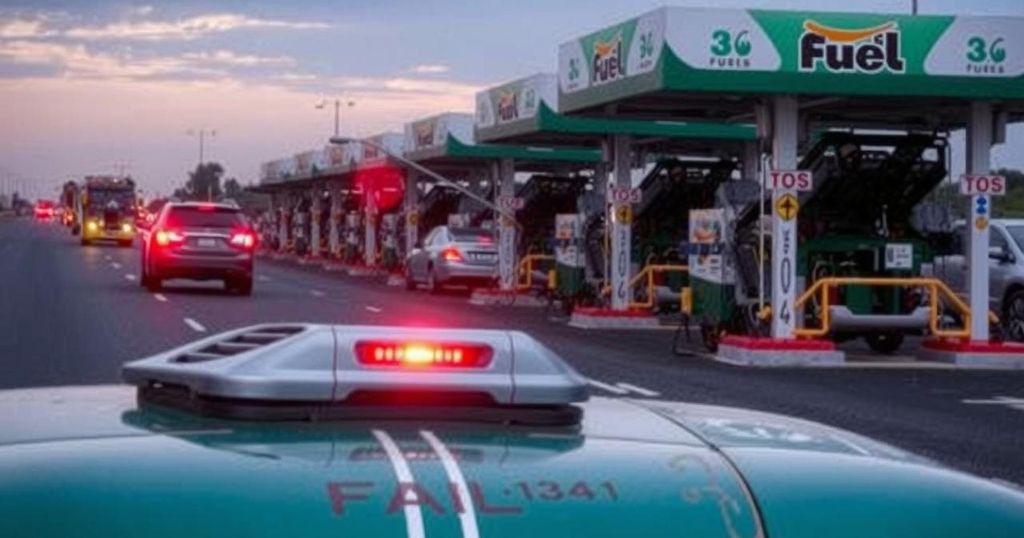Malawi and Zambia have halted fuel imports through Beira, Mozambique, due to civil unrest stemming from allegations of fraud in October’s elections. Malawian companies are now importing fuel via Tanzania, heightening concerns over fuel shortages, especially in Blantyre. One million litres of diesel is being transported from Nacala, but logistical challenges persist due to rioting along transport routes.
Zambia and Malawi have announced a suspension of fuel imports through Beira, Mozambique’s central port, due to ongoing political unrest and violent demonstrations resulting from allegations of widespread electoral fraud following the October 9 general elections. Reports indicate that Puma Energy Zambia issued an order to park all its trucks in secure locations, prompting Malawi’s fuel companies to similarly halt fuel imports via Beira.
Raymond Likambale, a spokesperson for the Malawian National Petroleum Company, informed Radio Mozambique that, amid the disturbances, fuel will now be imported through Tanzania, despite the increased distance from the port of Dar es Salaam to Malawi compared to Beira. This shift is anticipated to exacerbate fuel shortages in southern Malawi, especially in Blantyre, which already relies on Tanzanian imports. The transition to Dar es Salaam will remain in effect until the unrest in Mozambique subsides. Additionally, Likambale confirmed that one million litres of diesel is en route from the northern port of Nacala, although logistical challenges persist due to recent rioting that resulted in the torching of a goods train along the Nacala rail corridor.
Typically, Malawi sources 50 percent of its fuel through Beira, 20 percent from Nacala, and 30 percent through Dar es Salaam, emphasizing the critical role that the Beira port plays in the nation’s fuel supply chain. The continuing unrest poses significant logistical and operational challenges for fuel imports, with potential ramifications for regional stability and energy security.
The current crisis in Mozambique traces back to the general elections held on October 9, 2023, which were marred by allegations of electoral malpractice. The subsequent civil unrest and violence have forced neighboring countries like Zambia and Malawi to reassess their fuel import strategies, as Beira has historically been a key conduit for fuel supplies. By understanding the role of these ports and the complexities of regional dependencies on fuel imports, one can better appreciate the significance of the recent developments. The economic stability of Malawi, which has faced recent fuel shortages, is now further threatened by these geopolitical dynamics.
The suspension of fuel imports via Beira due to the political unrest in Mozambique has significant implications for both Zambia and Malawi, particularly concerning fuel availability. As Malawi shifts its fuel importation to longer and potentially less reliable routes through Tanzania and Nacala, the situation highlights the fragility of regional supply chains. The ongoing disturbances not only affect fuel supply but may also lead to broader economic consequences for the affected nations. Immediate resolution of unrest is crucial to restore normalcy in fuel distribution and ensure energy security in the region.
Original Source: www.thezimbabwemail.com






